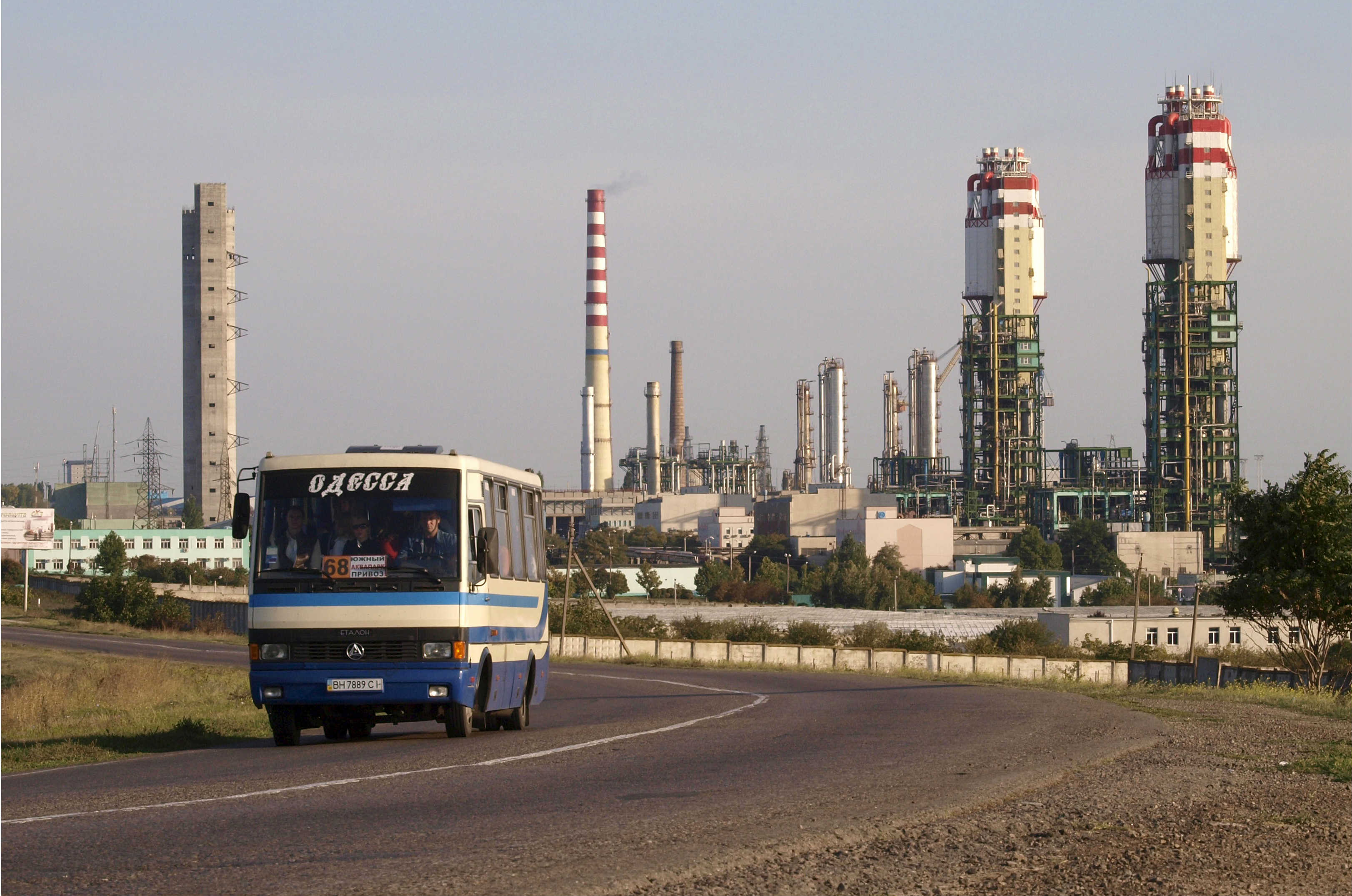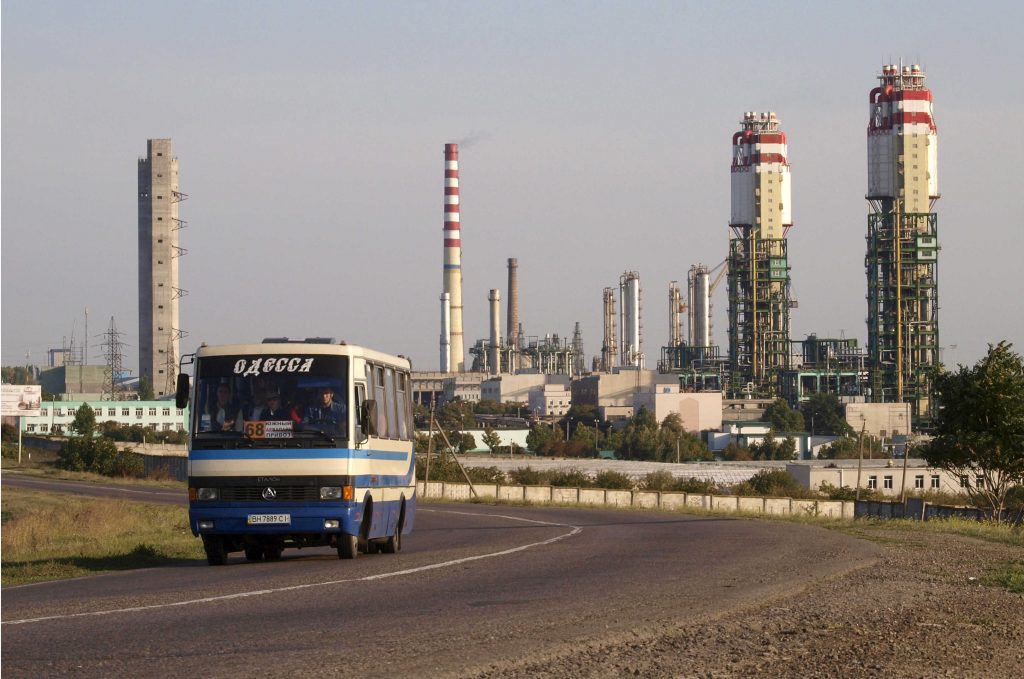 On July 18, Ukraine’s most recent attempt at privatization came to a disappointing conclusion. Odesa’s petrochemical plant, OPZ, was placed up for auction, but after the government set a minimum price of $520 million, no qualified bidders came forward. As a consequence, the state still owns the enterprise, which continues to impose losses on the state budget. That outcome is a clear indication of the market’s rejection of the Ministry’s opening minimum price. But it could also be an indication of intentional blockages by interested parties and an attempt to discredit the entire program in order for corrupt state managers to maintain their privileged positions.
On July 18, Ukraine’s most recent attempt at privatization came to a disappointing conclusion. Odesa’s petrochemical plant, OPZ, was placed up for auction, but after the government set a minimum price of $520 million, no qualified bidders came forward. As a consequence, the state still owns the enterprise, which continues to impose losses on the state budget. That outcome is a clear indication of the market’s rejection of the Ministry’s opening minimum price. But it could also be an indication of intentional blockages by interested parties and an attempt to discredit the entire program in order for corrupt state managers to maintain their privileged positions.
The plant’s managers are alleged to have manipulated contracts to extract profits at the expense of the public purse; OPZ has amassed a debt between $170 and $200 million to creditors of dubious reputation. While the enterprise functions in a legitimate business sector and is potentially viable, the poor quality of management and the high level of corruption within has made it unprofitable.
Ukraine has many similar enterprises—potentially profitable but poorly managed and subject to corruption—that are a burden on the state budget, employment, and tax revenue. They would benefit from the outside investment and management expertise that only privatization can bring.
But assessing the value of any enterprise is an exercise with a high degree of imprecision. Technical methodologies can be applied, such as the use of discounted cash flow models, comparable multiple analysis, replacement costs, and accounting book values. However, each of these methods has its limitations and cannot provide an exact measure of value. This is particularly relevant in Ukraine’s highly uncertain and undeveloped financial markets. For example, since there is only a very small equity trading market for shares, the use of comparable multiples—which are commonly used for valuation in Western countries—is essentially impossible. As a result, even with the input of the best financial advisers, the assessment of value can be determined only within a very broad range. Only an open bidding process can reveal the true value.
Prime Minister Volodymyr Groisman’s statement that OPZ’s price was set too high and will be lowered is a welcome recognition of the reality of Ukraine’s unfavorable investment climate.
There are a number of factors which lower the value of any Ukrainian enterprise relative to similar enterprises in the EU or North America. Investor risk plays a central role in valuation, and bidders for state enterprises face significant risks that are particular to Ukraine, in addition to normal business risks. They include political uncertainty, legislative instability, tax regime change, currency fluctuation and inconvertibility, bureaucratic delays, regulatory unpredictability, and systematic corruption. These risks have been well documented by international organizations assessing Ukraine’s business environment, which position Ukraine unfavorably in international rankings.
Another overriding consideration is the absence of the rule of law in Ukraine. Due to the arbitrary functioning of police, prosecutors, and judges, an investor can never be assured that commercial disputes will be fairly adjudicated. In fact, investors run substantial risk of criminal takeover and shakedowns without swift and just remedies. The rampant practice of “corporate raiding” has been a continual source of investor frustration. Even physical risk of harm exists, as many criminal elements operate with relative impunity. Reform in this area has been extremely weak and slow.
These various factors will highly discount the value of any state enterprise in Ukraine. A high-risk investment demands potentially high levels of return to attract investors, and that requires an initial low valuation.
Remedying these conditions in a short period of time is impossible. To establish credibility requires commitment, a concerted effort, and stability for a substantial period of time. However, privatization cannot wait: the economy badly needs the inflow of investment capital, added managerial skills, gains in efficiency of operation, elimination of government budget subsidies, international linkages for trade, and potential job creation and economic growth, all of which come with privatization.
Open bidding is the only way forward. The auction process must not be manipulated; it should be open and transparent, and the price should not be set at an artificially high level, as this will simply result in failed auctions. Investors bearing foreign capital should be encouraged to bid for state assets, and local oligarchs must not be given privileged access to state assets as they were during prior corrupt regimes. Waiting for material improvements in valuations would be a hopeless strategy, and the criticism of sell-outs coming from populist politicians must be countered by a fair and open auction process.
Basil A. Kalymon is Professor Emeritus at Ivey Business School, University of Western Ontario, Canada.
Image: A bus drives along a road, with Odesa Portside Plant (OPP) seen in the background, in the Black Sea port city of Odesa, in this September 29, 2009 file photo. REUTERS/Yevgeni Volokin/Files
